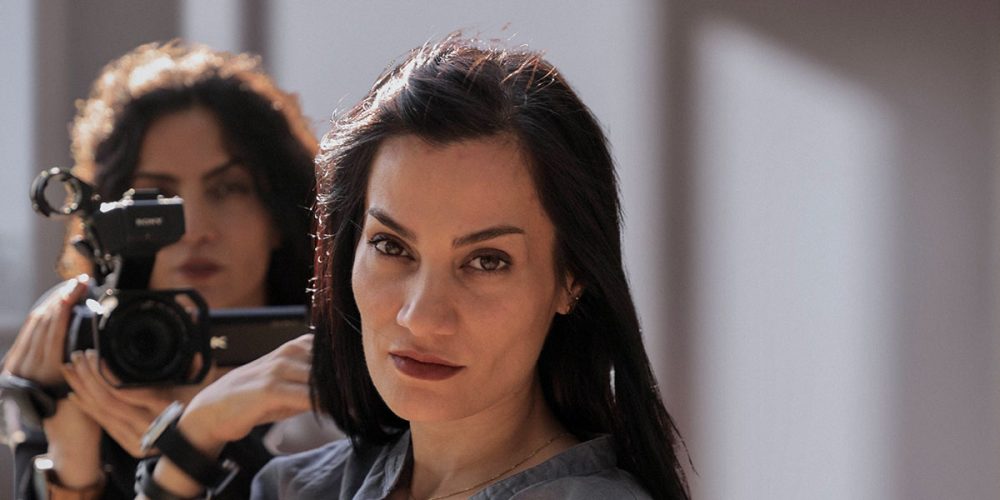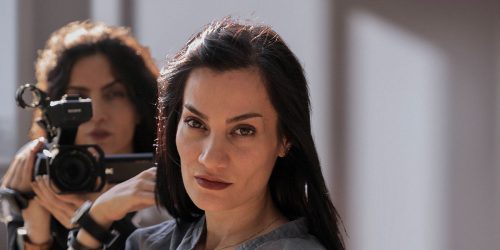In the Toronto International Film Festival’s documentary section, stories about fighting for one’s beliefs, dreams, and survival sit side-by-side on the schedule. From near and afar, cameras give the audience an up close and personal view of issues and topics we may only skim across in headlines. The lens puts a face, a name, and a place to struggle, expose secrets, and argue for justice in an unjust world. In these films, people fight for their beliefs, dreams, and lives against the odds, and with the help of filmmakers, tell their stories to the world.
“The Last Republican” is a timely entry ahead of the U.S. election coming up in November. The movie’s namesake lone ranger is former Republican congressman Adam Kinzinger, who famously broke rank with the Republican party after its leadership failed to break away from Donald Trump after his role in the January 6 insurrection. By chance, he was tapped by Nancy Pelosi to join the United States House Select Committee on the January 6 Attack, and he takes on the assignment to faithfully report the events of the day, inform the American public, and shine a light on how badly the Republican party has lost its way after condoning a coup and impeding the peaceful transition of power.
Progressive director Steve Pink and his conservative subject Kinzinger are an “Odd Couple”-esque political duo, occasionally punctuating serious conversations with good-humored ribbings from either side of the aisle. Many of the behind-the-scenes moments that Pink films with Kinzinger and his team of staffers feel like outtakes from “Veep” when it shows the strange quirks of working in one of the most famous offices in the country and when things get dire, how the team supports each other through harassing calls and menacing constituents. Early on, Kinzinger reveals he chose Pink to tell his story because he loves the director’s film “Hot Tub Time Machine,” and while the two make a strange pair, Pink’s sense of humor humanizes a figure whose politics may get in the way of his greater message: democracy is in danger, and it will take citizens across the political spectrum to save it.
Through Pink’s questions, Kinzinger shares more about his personal beliefs, fears, and dreams than could ever fit in a brief congressional bio. Beyond the busy schedule of committee meetings and politicking, he’s also trying to start a family, wrapping up his military career, coping from PTSD from a violent attack, and reconciling his lifelong love of politics and conservative values with the reality that left him a politician without a party. The documentary is surprisingly introspective and thought-provoking even if you aren’t dealing with the cognitive dissonance of right wing marching orders. Because as documentaries like “The Last Republican” and “War Game” have pointed out, this conversation is far from over, and democracy is not yet safe from those willing to tip this country into fascism.
A world away in Iran, director Leila Amini turns her camera on a subject close to her heart, her sister Nasreen, who dreams of becoming a professional singer. Unfortunately for Nasreen, Iran forbids women from performing in public, but this does not deter her. She signs up for singing lessons and sneaks in rehearsals while driving her car. Her sister stays close to her, capturing Nasreen’s every step towards stardom, following the joyous breakthroughs like her first recording and the everyday difficulties of balancing professional aspirations while juggling motherhood.
But Leila Amini’s “A Sister’s Tale” does more than just follow Nasreen’s pop star dreams. The film also captures the dissolution of her marriage, reflecting a greater crisis of unsupportive partners who, as in Nasreen’s case, do almost nothing to help with the house or children, fails to show up for her after surgery, and makes no time for their young family even as she pleads and begs him to be more involved for the sake of the kids. Meanwhile, Leila keeps her camera rolling, listening in on heartbreaking fights, consoling her niece and nephew, and recording the uncomfortable conversations Nasreen shares with her mother who fears her move towards independence may endanger her kids.
By the end, “A Sister’s Tale” becomes a testament to the many women like Nasreen who carve out time for themselves and their passion while looking after loved ones – absentee partners be damned. Nasreen fights her battles at home just as fervently as when she is taking on the government’s ban on women performers. At times, the documentary feels like it’s Leila and Nasreen against the world even when Nasreen wishes the camera would stop rolling. It’s because of her sister’s love and Nasreen’s trust that her story can move audiences and other women like herself.
“From Ground Zero” is like no other film at this year’s festival. Led by Palestinian director Rashid Masharawi, the Masharawi Fund pulled together a tapestry of 22 different short films from various filmmakers to take audiences to the bombed remnants and refugee camps of Gaza and hear survivors’ stories and memories of those they have lost. Each film is only a few minutes long and range from fiction and nonfiction shorts, but each short tells of a different experience, like that of a refugee volunteer worker who uses her makeup skills to hide her lack of sleep in “Selfie,” a comedian racing to make his set despite long shower lines at camp in “Everything is Fine,” and a filmmaker reduced to scraping flour from the road in order to survive in “Sorry Cinema.”
In many of the stories, the setting is built out of rubble, buildings loom overhead in danger of collapsing, and the hum of drones can be heard across films. Some filmmakers unflinchingly document the desperation of these times, like in “The Teacher” when the main character steps out for the day only to find out he can’t charge his phone and he needs something to eat but the bread line is too long. Occasionally, some shorts feature humor and dancing, a testament to the spirit of survivors who defy death to laugh and hug their loved ones another day. “From Ground Zero” is a moving view of the on-the-ground loss and heartache – the kinds of stories that don’t always make the news but still very much matter.
“From Ground Zero” is set to be Palestine’s entry to the Oscars next year, giving even more viewers insight to what life has been like in Gaza from those living there. Some stories are hauntingly honest, like “Soft Skin,” which features a group of children who create a stop motion animated short about the experience of having their mothers write their names on their bodies should they ever need to be identified after a bombing or the story of “Taxi Wanissa,” a short drama interrupted by the filmmaker herself to share that she could not complete the film’s original ending after the death of her brother and family. Together, the shorts that make up “From Ground Zero” become a powerful cry to the world that these filmmakers, collaborators, and people walking in the background are still there, still living under worsening conditions, and still need help. “From Ground Zero” is an unforgettable exhibition of the human spirit, a memorial to the trauma and brutality of life under war, and a collection of art that raises awareness and demands a better ending to this story than a sequel.
In the Toronto International Film Festival’s documentary section, stories about fighting for one’s beliefs, dreams, and survival sit side-by-side on the schedule. From near and afar, cameras give the audience an up close and personal view of issues and topics we may only skim across in headlines. The lens puts a face, a name, and Read More


